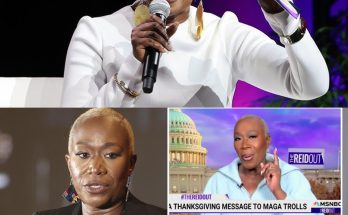The world knew Stephen “tWitch” Boss as the joyful soul behind Ellen’s show—the dancer who lit up every room. But now, a voicemail he left just before his tragic death has surfaced… and it’s dragging Diddy back into the fire.
In this exclusive CloutWatcher breakdown, we explore what tWitch may have discovered—and why some believe he was trying to speak out against Hollywood’s darkest secrets. What did he know about Diddy’s secret parties? Who else might’ve been caught on those alleged tapes? And why is the timing of his passing raising so many eyebrows?
The industry is shaking, and this might be the most damning piece yet in the case against Diddy.
The Scary Moment That Changed Everything: A Reflection on Loss and Hidden Struggles
Life is often a series of moments that shape us, but some moments are more profound than others. One such moment in my life came when I learned about the tragic passing of Steven “Twitch” Boss, a beloved figure known for his infectious smile and incredible talent. The news hit me like a ton of bricks, not just because of the loss itself, but because it forced me to confront the darker realities that often lie beneath the surface of seemingly perfect lives.
Twitch was not just a dancer; he was a beacon of joy on “The Ellen DeGeneres Show.” His energy was palpable, and he had a way of making everyone feel included and valued. However, as the news of his death unfolded, it became clear that there was much more to his story than what met the eye. The initial shock morphed into a deeper understanding of the struggles he faced, struggles that many of us can relate to but often choose to ignore.
In the days following Twitch’s death, I found myself reflecting on the concept of hidden struggles. It became evident that he was wrestling with demons that he felt he could not share with anyone. The shame and stigma surrounding mental health issues often lead individuals to self-medicate and cope in ways that are not healthy. Twitch’s story is a stark reminder that even those who seem to have it all together can be fighting battles that remain unseen.
As I processed this information, I couldn’t help but think about the societal pressures that come with fame. Twitch was not just a performer; he was a public figure who faced scrutiny from fans and critics alike. The pressure to maintain a certain image can be overwhelming, and it often leads to a façade that hides the true self. This realization was a scary moment for me, as it highlighted the fragility of mental health and the importance of open conversations about our struggles.
Twitch’s relationship with Ellen DeGeneres was also a focal point in the discussions that followed his passing. Many began to speculate about the dynamics of their friendship and the potential pressures he faced while working on her show. Ellen had been embroiled in controversy, and the scrutiny surrounding her could have added to Twitch’s stress. The question arose: Did he feel compelled to support her despite the backlash? The weight of such expectations can be suffocating, and it made me reflect on the importance of surrounding ourselves with supportive individuals who encourage us to prioritize our mental health.
In the wake of Twitch’s death, I also thought about his family, particularly his wife, Allison Holker. Just days before his passing, they were celebrating their ninth wedding anniversary, and the couple had even discussed expanding their family. This juxtaposition of joy and tragedy is a reminder that life can change in an instant, and it emphasizes the need to cherish our loved ones and communicate openly about our feelings.
As the news spread, the internet buzzed with theories and speculation. Some claimed that Twitch had been on the verge of exposing darker truths about the entertainment industry, particularly regarding his experiences with Hollywood elites. The whispers suggested that he may have witnessed things that could jeopardize careers, leading to a chilling narrative that he was silenced before he could speak out. This notion, while speculative, highlights the fear that many individuals in the public eye may feel when confronting uncomfortable truths.
The idea that someone could be silenced for knowing too much is a terrifying thought. It raises questions about the lengths to which people will go to protect their secrets and the potential consequences for those who dare to speak out. This fear of retribution can create an environment where individuals feel they have no choice but to suffer in silence, further perpetuating the cycle of mental health struggles.
Twitch’s story serves as a wake-up call for all of us. It reminds us that we must prioritize mental health and create spaces where individuals feel safe to share their struggles without fear of judgment. The stigma surrounding mental health needs to be dismantled, and we must encourage open conversations about our feelings and experiences.
In the aftermath of Twitch’s passing, I found myself more aware of the people around me. I began to check in on friends and family, asking how they were truly doing rather than accepting surface-level responses. This simple act of reaching out can make a significant difference in someone’s life. We never know what someone else is going through, and a small gesture of kindness can go a long way.
The scary moment of realizing the complexities of Twitch’s life and the struggles he faced has left a lasting impact on me. It has prompted me to reflect on my own life and the lives of those around me. We must remember that behind every smile, there may be a story of pain and resilience. As we navigate our own journeys, let us strive to create a culture of understanding and support, where individuals feel empowered to share their truths and seek help when needed.
In the end, Twitch’s legacy should not only be one of talent and joy but also a reminder of the importance of mental health awareness. Let us honor his memory by fostering open conversations and supporting one another in our struggles, ensuring that no one feels they have to face their battles alone.




